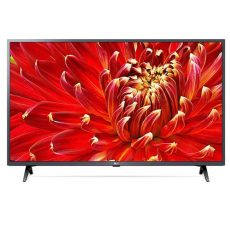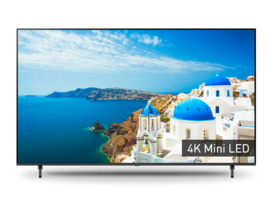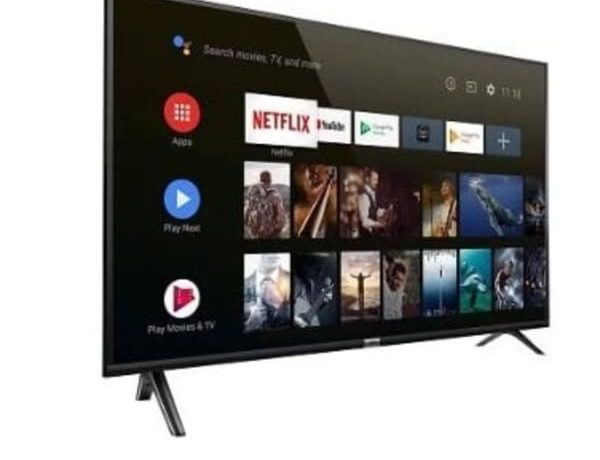TV brands to buy in nigeria.
When it comes to purchasing a television in Nigeria, it is important to consider the quality, features, and reliability of the brand. Here are some of the best television brands to consider when looking to buy a TV in Nigeria and on Yurbshop
Listed below are the best TV brands you can get out there.

Samsung is a renowned south korean brand that offers a wide range of high-quality televisions. Known for their innovative technology, Samsung TVs come with vibrant displays, excellent picture quality, and smart features. They offer a variety of options in different price ranges to cater to different budgets and preferences.

LG is another popular south Korean brand that is known for its reliable and durable televisions. LG TVs are widely appreciated for their picture clarity, color accuracy, and sleek designs. They offer a range of models with various features, including smart functionality and impressive sound quality, ensuring an immersive viewing experience.

Sony is a well-established Japanese brand that has been synonymous with high-end televisions for many years. Sony TVs are known for their exceptional picture quality, vibrant colors, and advanced technologies such as 4K resolution and HDR support. They also feature sleek designs and user-friendly interfaces, making them a popular choice among consumers.
TCL is a rapidly growing brand in Nigeria, offering a good balance between quality and affordability. TCL TVs provide great value for money, with features like 4K resolution, HDR support, and smart capabilities. They are especially known for their affordable pricing and good overall performance, making them an attractive option for budget-conscious buyers.

Hisense is another brand that offers reliable and affordable televisions in Nigeria. Their TVs come in various sizes and feature sets, including smart functionality, 4K resolution, and HDR compatibility. Hisense TVs are known for their decent picture quality, impressive sound output, and competitive pricing.

Panasonic TVs are known for their durability and reliability. They offer a range of models with different features, including smart functions, high-resolution screens, and user-friendly interfaces. Panasonic TVs are especially appreciated for their natural color reproduction and strong build quality.When buying a television, it is essential to consider your specific needs, preferences, and budget. Additionally, it is advisable to research and compare different models and read reviews from trusted sources to make an informed decision. Remember, while the brand is an important factor, it is equally important to evaluate the specific features, screen size, resolution, and connectivity options to ensure you select a TV that meets your requirements.
Yurbshop Electronics Store have a range of television selection to ensure there’s something awesome for every home and office. We are committed to get you some of the best TV Brands in Nigeria like LG, Samsung, and Sony, TCL, Hisense, Polystar, Infinix, Syinix etc. at competitive prices making online shopping safe, affordable, and convenient. Visit Electronics Store, for your best home entertainment statements.
HISTORY OF TELEVISION IN NIGERIA
Television has become an essential part of our lives, serving as a powerful medium of communication, information, and entertainment. In the context of Nigeria, television has played a prominent role in shaping the country’s culture, economy, and social fabric. Television was introduced to Nigeria in 1959 when the Western Nigeria Television (WNTV) began broadcasting. Since then, the television industry has grown significantly, with numerous television stations established across the country. The first national television station, the Nigerian Television Authority (NTA), was launched in 1977 and still remains a major player in the industry.Television in Nigeria has had a significant impact on information dissemination. It serves as a source of news, connecting people from different regions to current events and enabling the dissemination of information on a large scale. News programs play a crucial role in keeping Nigerians informed about local and international affairs, politics, economics, and social issues.Television has also contributed immensely to the entertainment sector in Nigeria. Nollywood, the Nigerian film industry, has grown rapidly and gained international recognition, partially due to the influence of television. Nigerian movies and soap operas have captured the hearts of many Nigerians and Africans at large, showcasing Nigerian culture, traditions, and storytelling.Furthermore, television has been instrumental in the promotion of education. Educational television programs cater to both children and adults, covering a wide range of subjects including mathematics, sciences, history, and languages. These programs have proven to be an effective tool in supplementing traditional educational methods and improving access to quality education, particularly in remote areas.Television has also contributed to the nation’s economy. Advertising revenue is a major source of income for television stations, and the industry has created numerous job opportunities in areas such as broadcasting, production, directing, scriptwriting, and acting. Additionally, the television industry has spurred the growth of ancillary businesses, including equipment rental, advertising agencies, and production houses, thus contributing to the overall economic development of Nigeria. However, like any technological advancement, television in Nigeria also faces some challenges. Limited electricity supply, especially in rural areas, poses significant hurdles to television accessibility for many Nigerians. The high cost of production equipment and accessing quality content also affects the industry’s growth. Furthermore, the emergence of digital platforms and streaming services has changed viewership patterns, forcing traditional television broadcasters to adapt to the changing landscape.In conclusion, television in Nigeria has become an integral part of the country’s development, contributing to information dissemination, entertainment, education, and economic growth. It has played a significant role in shaping the country’s culture, fostering national unity, and providing a platform for social discourse. As technology continues to evolve, the Nigerian television industry must embrace innovation and adapt to the changing media landscape to continue serving and connecting communities across the nation.






























